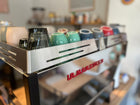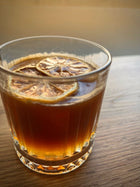More about El Salvador Marta Yaneth Lemus
Description
More
Less
The impressive Pacamara coffee of Marta Yaneth Lemus comes from the Chalagenango region, which is situated in the northern part of El Salvador. The farms here are predominantly small (3.5 – 10.5 hectares) and the producers grow classic Salvadorian varieties such as Pacas, Pacamara and Bourbon.
Marta Yaneth Lemus owns the small farm called San Antonio, which is less-than 1 hectare, where she grows Pacamara and Gesha. The cherries of the Pacamara variety are picked ripe and depulped the same day before being fermented for 24 hours. Then they are washed and dried on raised beds for 15–22 days
Country and Region Pacamara
More
Less
Process: Honey
More
Less
Variety: Pacamara
More
Less
Description
The impressive Pacamara coffee of Marta Yaneth Lemus comes from the Chalagenango region, which is situated in the northern part of El Salvador. The farms here are predominantly small (3.5 – 10.5 hectares) and the producers grow classic Salvadorian varieties such as Pacas, Pacamara and Bourbon.
Marta Yaneth Lemus owns the small farm called San Antonio, which is less-than 1 hectare, where she grows Pacamara and Gesha. The cherries of the Pacamara variety are picked ripe and depulped the same day before being fermented for 24 hours. Then they are washed and dried on raised beds for 15–22 days
Country and Region Pacamara
Process: Honey
Variety: Pacamara
You May Also Like
More about us on social media
















